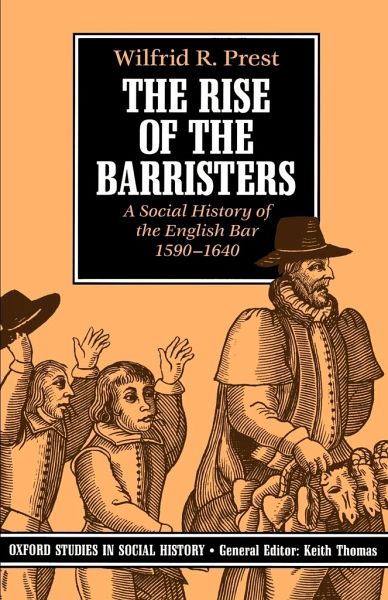
The Rise of the Barristers
A Social History of the English Bar 1590-1640

PAYBACK Punkte
44 °P sammeln!
Barristers constituted the most powerful and prosperous professional group in early modern England. In the half-century before the calling of the Long Parliament in 1640, this branch of the legal profession grew rapidly and underwent profound structural change. Wilfrid Prest systematically examines the effects of these changes on the barrister's working life, along with the changing balance between supply and demand for his services during this formative period. Patterns of professional recruitment, training, and mobility have been reconstructed from the social origins and careers of some 500 individual lawyers, and separate chapters explore the participation of barristers in the cultural, religious, and political life of Elizabethan and early Stuart England. The book concludes by considering the nature and underlying causes of the largely unfavourable image of the early modern lawyer.
The barristers were the most powerful and prosperous professional group in early modern England. This book systematically examines the barrister's working life during a half-century of rapid growth and structural change within the legal profession. Prest analyzes patterns of professional recruitment, training, and mobility and explores the participation of barristers in the cultural, religious, and political life of Elizabethan and early Stuart England. This is the first book to be published in the Oxford Studies in Social History, under the general editorship of Keith Thomas. The series, which will cover all periods and parts of the world, will include original works of scholarship on a broad range of subjects of interest to historians as well as to scholars working in related fields.


